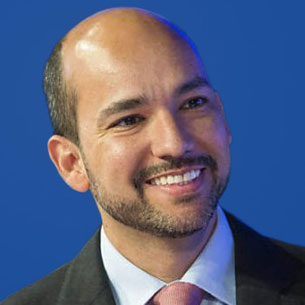"Even as I spoke, an immense shape
Materialized in the night air,
Grotesque and enormous stature
With heavy jowls, and an unkempt beard
Scowling from shrunken, hollow eyes
Its complexion earthy and pale,
Its hair grizzled and matted with clay,
Its mouth coal black, teeth yellow with decay.”
—Luis de Camões, The Lusiads, Canto V
Adamastor, the spirit of the cape, represented the untamed forces of nature Portuguese navigators faced as they attempted to find a sea route to India and the Far East. This mythical giant figures not only in the works of Luis de Camões and José Saramago, well known to those of us who had a Lusophone education, but also in Victor Hugo's Les Misérables, Alexandre Dumas' The Count of Monte Cristo, and even Herman Meville's Billy Budd. In 1488, Bartolomeu Dias rounded what he called Cape of Storms, which we know today as the Cape of Good Hope. Five centuries later, Adamastor and Dias are all but forgotten except for two statues: the giant's in Lisbon, Portugal, and the explorer's in Cape Town, South Africa, where the oncology community met in mid-November 2013 to discuss cancer control around the globe.
Founded in 1933 and comprising nearly 800 members, the Union for International Cancer Control (UICC) is a nongovernmental organization (NGO) that aims to support the global health community in our fight against the disease. The Union has been instrumental, as one of the founding partners of the NCD (Non-Communicable Diseases) Alliance, in bringing cancer control into the agenda of the United Nations (UN), leading to a High-Level Summit held in September 2011. As a result of that meeting, the UN General Assembly adopted Resolution 66/2, which aims to raise awareness and lead the efforts in combating NCDs in member nations. The World Health Organization has since developed a global monitoring framework and specific targets and indicators with the goal of decreasing NCD premature mortality by 25% by 2025. To achieve this goal the other eight voluntary targets include decreasing harmful use of alcohol and insufficient physical activity by 10%, the prevalence of hypertension by 25%, and the use of tobacco and salt by 30% each; halting the rise in diabetes and obesity; providing counseling and drug therapy to 50% of patients at risk for heart attacks and strokes; and ensuring 80% coverage for essential NCD medicines and technologies.
“Closing the Cancer Divide by 2025” was the theme of UICC's 2013 World Cancer Leaders' Summit (WCLS), attended by nearly 200 high-level national government and UN officials, NGOs, international cancer leaders, and private sector partners. ASCO was represented by Doug Pyle, Senior Director for International Affairs. I had the honor to give a talk on access to cancer medications in low- and middle-income countries at one of the pre-meeting partner's events and was humbled to share our experience and to see that of countless others who are working towards a cancer-free world. Highlights of the pre-WCLS events included discussions on public-private partnerships, tobacco control in Africa, cancer and economic development, and the launch of the U.S. National Cancer Institute-led international partnership focused on cancer control planning, among others. The summit proper started with a plenary talk on “Cancer in the Global NCD Agenda” and a call for further cancer-specific actions, which were debated in several sessions throughout the day.
The main deliverable from the meeting was a refreshed World Cancer Declaration, aligned to the NCD struggle and goals. UICC supports the use of the Declaration to “encourage governments to implement policies and programs that the cancer community knows will be successful if they are adequately resourced and embedded within national cancer and NCD plans; to reach out beyond health ministries to gain the political backing of all sectors of government – using the Declaration together with resource-appropriate and culturally relevant examples of successful implementation of policies outside of health is critical to ensuring a whole-of-government response to the cancer crisis; and to continue pressing for cancer and other NCDs to be embedded within the next generation of internationally agreed development goals.”
Just as rounding the Cape of Good Hope allowed Portuguese merchants to bypass the Mediterranean trade routes and ignited the first era of globalization, we hope that in the future we will look back at the UN High-Level Meeting and this year's summit as the beginning of the era in which we controlled global cancer disparities. Join the fight, read and sign the World Cancer Declaration!


Recent posts